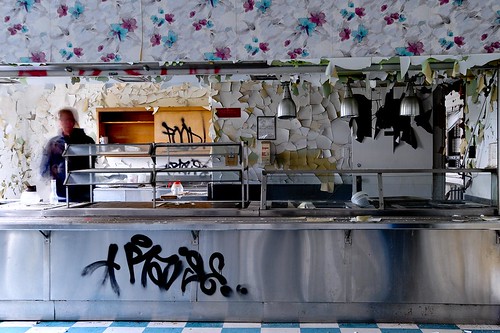bench craft company review Republicans in California are on life support. Will they pull the plug themselves?
Last year, they lost all eight statewide offices for the second time in the last three general elections. While the GOP was cleaning up elsewhere in the country, they also lost a Republican Assembly seat, and failed to take out any Democrats in Congress or the state Senate. U.S. Sen. Barbara Boxer, always a top GOP target, beat her well-financed Republican adversary by 10 points -- the eighth straight loss for the Republicans in California U.S. Senate races.
How much lower can they go? Based on the 2010 census data, California Republicans probably have not hit bottom yet -- and if they're not careful, could go the way of the Whigs. And Democrats are not their biggest enemy. Demographics are.
Between 2000 and 2010, 29 -- fully half -- of California's 58 counties saw an eye-popping increase in their Latino populations of between 40.1 percent and 100 percent. Another 16 gained between 30.1 and 40 percent, and Latinos in seven counties increased between 20.1-30 percent. Only one county, the smallest of all, tiny Alpine with only a little more than 1,000 residents, actually lost Latinos over the last decade.
Of the 29 counties with the largest growth in Latinos, only three of them touch the coast, with the others being in inland California -- generally considered to be the most Republican-friendly part of the state. A majority of all Californians under the age of 18 -- future voters -- are now Latino. The California Department of Finance projects that as early as 2016 Latinos will replace Caucasians as the largest ethnic group. By 2040, Latinos are projected to constitute an absolute majority -- 52 percent -- of Californians.
In addition, while Latinos grew by 28 percent since 2000, Asian Americans increased by even more, 31 percent. At 38 and 13 percent, respectively, of California's population, Latinos and Asians combined are now for the first time a majority of the state. And blacks add another 6.2 percent, for a total minority population of nearly 60 percent.
Overlay this demographic data with the recent voting history and patterns of minority voters in the state, and you can get a sense of the dire dimensions of the Republicans' problems. In all presidential and gubernatorial elections in the Golden State since 1994, the average share of the Latino vote garnered by the Republican nominees was 25.3 percent.
In those same elections since '94, an average of only 37.7 percent of Asian American voters opted for the GOP candidate (and only Arnold Schwarzenegger broke the pattern, receiving a majority of Asian voters in his 2006 reelection). And, of course, forget blacks, who regularly vote 75-90 percent for the Democrat in statewide races (94 percent for Barack Obama in 2008).
In 1994, whites constituted 82 percent of the electorate, with Latinos at only 8 percent. In the 2006 general election, Caucasians comprised 75 percent and Latinos 12 percent. In 2010, whites were down to 62 percent, with Latinos hitting a historic high of 22 percent. Isn't the trend obvious to Republicans?
Meanwhile, back at the all-white Republican ranch, of the 19 California Republicans in Congress, 15 in the 40-member Senate and 28 in the 80-member Assembly, there are zero Latinos, zero Asian Americans and zero blacks. Historically speaking, this state of affairs not only represents backward movement, it also contains a number of ironies.
The first Hispanic ever to represent a state in Congress actually was a Republican from California, Romualdo Pacheco, elected in 1876. He also happened to be the first Hispanic ever to chair a standing congressional committee -- the Committee on Private Land Claims. But California Republicans haven't elected a Latino to Congress since Pacheco -- a drought of more than 130 years.
The first African American ever elected to the California Legislature was a Republican, Frederick Roberts of Los Angeles, who served from 1918-1933 and authored early civil rights legislation. There hasn't been a black Republican in the Legislature since.
In 1996, the first Republican Latino was elected to the Assembly in modern times. In 1998, three more gained office. The four of them started a first-ever Hispanic Republican Legislative Caucus. Then, from 2004-08, there was only one Republican Latino in the Assembly. Now there are none -- and obviously no caucus, either. The only Republican Latino ever to serve in the state Senate, Abel Maldonado, left that body in 2009 when Gov. Schwarzenegger appointed him lieutenant governor -- then lost in his attempt to be elected to the office last November.
As recently as 2008, there were three Republican Asian Americans serving in the Legislature. Now, there are none.
Another shocking statistic, if you're a Republican: of California's 58 counties, not one has a Republican majority of registered voters -- not even Orange County, historically regarded as one of the most Republican big counties in America (now just 43 percent Republican), or the conservative, rural "cow counties" just south of the Oregon border.
Although the Legislature engaged in a bipartisan conspiracy in 2001 to re-draw congressional and legislative district boundaries to protect the then-existing partisan control, Republicans also no longer have majorities of registered voters in any of the 53 congressional districts, the 40 Senate seats or 80 Assembly seats.
So what should California Republicans do to save themselves from themselves? I don't have a clue, but I do have some advice about what not to do. Newly elected Assemblyman Tim Donnelly, a Tea Party-affiliated nitwit (and white guy, of course), recently brought to California for a public event the state senator who sponsored Arizona's infamous SB 1070, and has been introducing anti-immigrant measure after measure.
Some conservative groups in the state are gearing up to put an Arizona-type anti-immigrant measure on the ballot in 2012. Shades of Proposition 187 in 1994, which turned Latinos against Republicans for probably two or three generations. Fully 78 percent of California Latino voters as of last November's election registered to vote since 1994.
And don't take just my view of it. In a Wall Street Journal piece on May 2, two respected California GOP strategists issued their own Cassandra-type warnings to their party. Hector Barajas (yes, I guess there must be at least one California Republican Latino!), who led Latino outreach for gubernatorial candidate Meg Whitman's campaign, warned his fellow party members that they risked "political suicide" if they didn't consider Latinos in crafting their campaigns. "Latinos don't like us very much," he averred to the Journal. Marty Wilson, who ran Carly Fiorina's U.S. Senate race, also cautioned Republicans to avoid anti-immigration rhetoric meant to stir up the party's nativist base.
Republicans, already down to an all-time historic low of only 30.9 percent of registered voters in the Golden State, are courting long-term political irrelevance and disaster if they fail to grasp the continuing emergence of the state's minority voting power.
If they don't want to or can't figure out how, it could be hasta la vista, baby.
Garry South is a longtime Democratic strategist and commentator.
Republicans in California are on life support. Will they pull the plug themselves?
Last year, they lost all eight statewide offices for the second time in the last three general elections. While the GOP was cleaning up elsewhere in the country, they also lost a Republican Assembly seat, and failed to take out any Democrats in Congress or the state Senate. U.S. Sen. Barbara Boxer, always a top GOP target, beat her well-financed Republican adversary by 10 points -- the eighth straight loss for the Republicans in California U.S. Senate races.
How much lower can they go? Based on the 2010 census data, California Republicans probably have not hit bottom yet -- and if they're not careful, could go the way of the Whigs. And Democrats are not their biggest enemy. Demographics are.
Between 2000 and 2010, 29 -- fully half -- of California's 58 counties saw an eye-popping increase in their Latino populations of between 40.1 percent and 100 percent. Another 16 gained between 30.1 and 40 percent, and Latinos in seven counties increased between 20.1-30 percent. Only one county, the smallest of all, tiny Alpine with only a little more than 1,000 residents, actually lost Latinos over the last decade.
Of the 29 counties with the largest growth in Latinos, only three of them touch the coast, with the others being in inland California -- generally considered to be the most Republican-friendly part of the state. A majority of all Californians under the age of 18 -- future voters -- are now Latino. The California Department of Finance projects that as early as 2016 Latinos will replace Caucasians as the largest ethnic group. By 2040, Latinos are projected to constitute an absolute majority -- 52 percent -- of Californians.
In addition, while Latinos grew by 28 percent since 2000, Asian Americans increased by even more, 31 percent. At 38 and 13 percent, respectively, of California's population, Latinos and Asians combined are now for the first time a majority of the state. And blacks add another 6.2 percent, for a total minority population of nearly 60 percent.
Overlay this demographic data with the recent voting history and patterns of minority voters in the state, and you can get a sense of the dire dimensions of the Republicans' problems. In all presidential and gubernatorial elections in the Golden State since 1994, the average share of the Latino vote garnered by the Republican nominees was 25.3 percent.
In those same elections since '94, an average of only 37.7 percent of Asian American voters opted for the GOP candidate (and only Arnold Schwarzenegger broke the pattern, receiving a majority of Asian voters in his 2006 reelection). And, of course, forget blacks, who regularly vote 75-90 percent for the Democrat in statewide races (94 percent for Barack Obama in 2008).
In 1994, whites constituted 82 percent of the electorate, with Latinos at only 8 percent. In the 2006 general election, Caucasians comprised 75 percent and Latinos 12 percent. In 2010, whites were down to 62 percent, with Latinos hitting a historic high of 22 percent. Isn't the trend obvious to Republicans?
Meanwhile, back at the all-white Republican ranch, of the 19 California Republicans in Congress, 15 in the 40-member Senate and 28 in the 80-member Assembly, there are zero Latinos, zero Asian Americans and zero blacks. Historically speaking, this state of affairs not only represents backward movement, it also contains a number of ironies.
The first Hispanic ever to represent a state in Congress actually was a Republican from California, Romualdo Pacheco, elected in 1876. He also happened to be the first Hispanic ever to chair a standing congressional committee -- the Committee on Private Land Claims. But California Republicans haven't elected a Latino to Congress since Pacheco -- a drought of more than 130 years.
The first African American ever elected to the California Legislature was a Republican, Frederick Roberts of Los Angeles, who served from 1918-1933 and authored early civil rights legislation. There hasn't been a black Republican in the Legislature since.
In 1996, the first Republican Latino was elected to the Assembly in modern times. In 1998, three more gained office. The four of them started a first-ever Hispanic Republican Legislative Caucus. Then, from 2004-08, there was only one Republican Latino in the Assembly. Now there are none -- and obviously no caucus, either. The only Republican Latino ever to serve in the state Senate, Abel Maldonado, left that body in 2009 when Gov. Schwarzenegger appointed him lieutenant governor -- then lost in his attempt to be elected to the office last November.
As recently as 2008, there were three Republican Asian Americans serving in the Legislature. Now, there are none.
Another shocking statistic, if you're a Republican: of California's 58 counties, not one has a Republican majority of registered voters -- not even Orange County, historically regarded as one of the most Republican big counties in America (now just 43 percent Republican), or the conservative, rural "cow counties" just south of the Oregon border.
Although the Legislature engaged in a bipartisan conspiracy in 2001 to re-draw congressional and legislative district boundaries to protect the then-existing partisan control, Republicans also no longer have majorities of registered voters in any of the 53 congressional districts, the 40 Senate seats or 80 Assembly seats.
So what should California Republicans do to save themselves from themselves? I don't have a clue, but I do have some advice about what not to do. Newly elected Assemblyman Tim Donnelly, a Tea Party-affiliated nitwit (and white guy, of course), recently brought to California for a public event the state senator who sponsored Arizona's infamous SB 1070, and has been introducing anti-immigrant measure after measure.
Some conservative groups in the state are gearing up to put an Arizona-type anti-immigrant measure on the ballot in 2012. Shades of Proposition 187 in 1994, which turned Latinos against Republicans for probably two or three generations. Fully 78 percent of California Latino voters as of last November's election registered to vote since 1994.
And don't take just my view of it. In a Wall Street Journal piece on May 2, two respected California GOP strategists issued their own Cassandra-type warnings to their party. Hector Barajas (yes, I guess there must be at least one California Republican Latino!), who led Latino outreach for gubernatorial candidate Meg Whitman's campaign, warned his fellow party members that they risked "political suicide" if they didn't consider Latinos in crafting their campaigns. "Latinos don't like us very much," he averred to the Journal. Marty Wilson, who ran Carly Fiorina's U.S. Senate race, also cautioned Republicans to avoid anti-immigration rhetoric meant to stir up the party's nativist base.
Republicans, already down to an all-time historic low of only 30.9 percent of registered voters in the Golden State, are courting long-term political irrelevance and disaster if they fail to grasp the continuing emergence of the state's minority voting power.
If they don't want to or can't figure out how, it could be hasta la vista, baby.
Garry South is a longtime Democratic strategist and commentator.
bench craft company scambench craft company scambench craft company reviewSome have suggested that part of the reason that the Transportation Security Administration instituted aggressive patdowns in airport security lines was because it hoped people would more willingly go through whole-body-imaging scanners ...
Google News today unveiled a number of changes, including.
News that Arnold Schwarzenegger fathered a child with a household staffer rattled some patrons Tuesday of a Brentwood coffee shop not far from the ex-governor's home. Sel Muttah, 34, a Los Angeles bookseller, said he was upset and angry ...
bench craft company reviewbench craft company complaints
bench craft company complaints
bench craft company review







